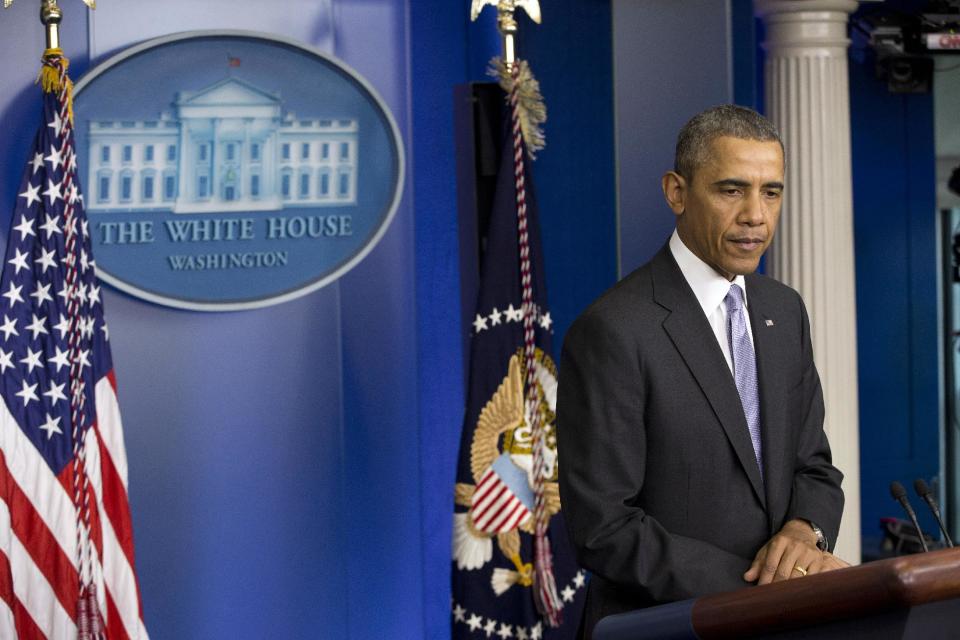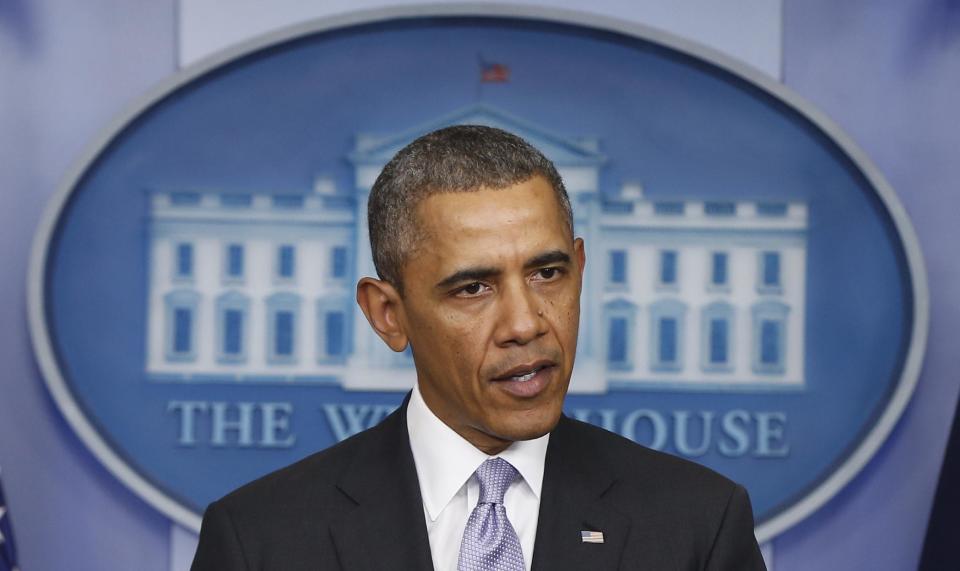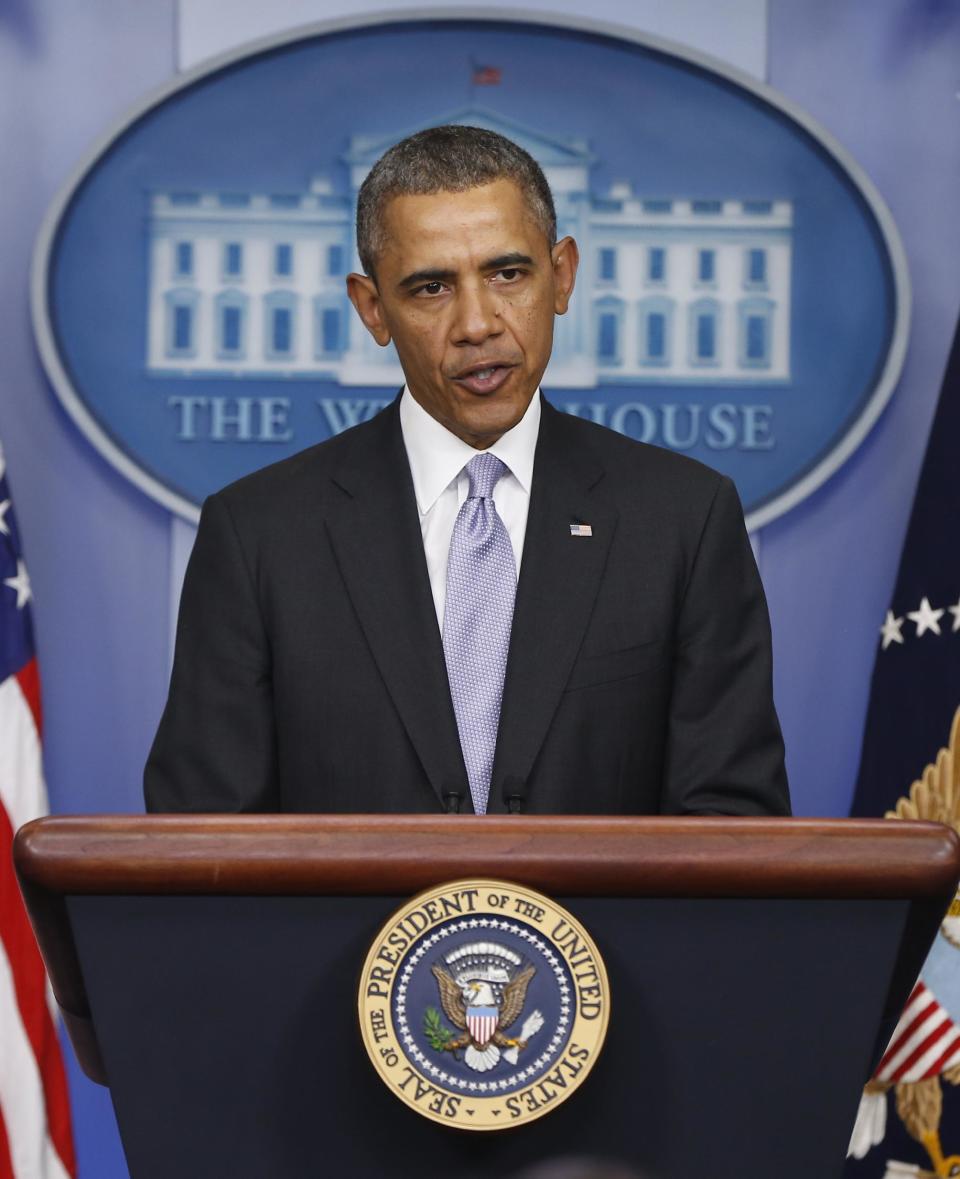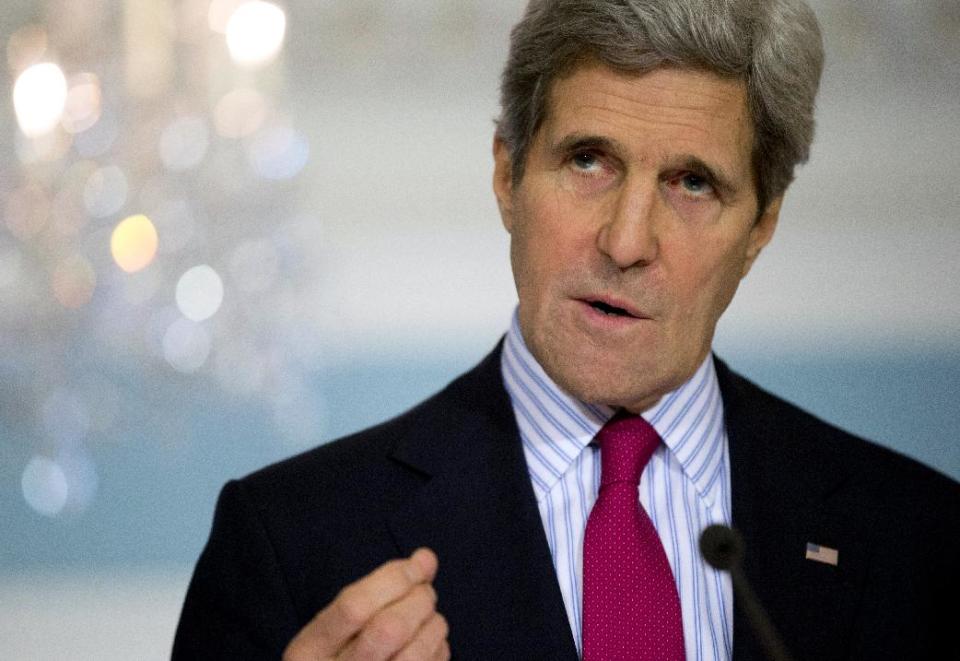Obama warns Russia of 'costs' in Ukraine
WASHINGTON (AP) — President Barack Obama expressed deep concern Friday over reported military activity inside Ukraine by Russia and bluntly warned "there will be costs" for any intervention.
He did not say what those costs might be.
Obama called on Russia to respect the independence and territory of Ukraine and not try to take advantage of its neighbor, which is undergoing political upheaval.
"Any violation of Ukraine's sovereignty and territorial integrity would be deeply destabilizing," Obama said in a statement delivered from the White House. Such action by Russia would not serve the interests of the Ukrainian people, Russia or Europe, Obama said, and would represent a "profound interference" in matters he said must be decided by the Ukrainian people.
"Just days after the world came to Russia for the Olympic Games, that would invite the condemnation of nations around the world," Obama said. "The United States will stand with the international community in affirming that there will be costs for any military intervention in Ukraine."
As Obama prepared to speak, a spokesman for the Ukrainian border service said eight Russian transport planes had landed with unknown cargo in Crimea, a pro-Russian region of southern Ukraine. Serhiy Astakhov told The Associated Press that the Il-76 planes arrived unexpectedly Friday and were given permission to land, one after the other, at Gvardeiskoye air base, north of the regional capital, Simferopol.
Astakhov said the people in the planes refused to identify themselves and waved off customs officials.
Obama noted that Russia has a historic relationship with Ukraine, a former Soviet republic, including cultural and economic ties and a Russian military facility in Crimea.
In recent conversations between U.S. and Russian officials, including a lengthy telephone conversation between Obama and Russian President Vladimir Putin just last week, Obama said the U.S. has made clear to the Russians that they can be part of an international community's effort to support the stability and success of Ukraine.
But, he said Friday, "we are now deeply concerned by reports of military movements taken by the Russian Federation inside of Ukraine."
Earlier Friday, as pro-Russia gunmen patrolled Crimean streets in armored vehicles and took over airports there, Secretary of State John Kerry warned Moscow against military moves in Crimea that could further inflame tensions.
Kerry and White House spokesman Jay Carney both said any Russian military intervention would be a grave mistake and that the United States was watching closely. They did not spell out any consequences for an intervention.
Kerry said he called Russian Foreign Minister Sergey Lavrov for the second time in two days to press the Kremlin to keep its promise to respect Ukraine's sovereignty and territorial integrity.
Lavrov repeated Russian President Vladimir Putin's pledge to do just that while also pointing out that Russia has broad interests in Ukraine, Kerry said.
The secretary of state said the U.S. was watching to see if Russian activity in Crimea "might be crossing a line in any way." He added that the administration would be "very careful" in making judgments about that. Carney echoed Kerry's comments at the White House.
Kerry reiterated the U.S. view that Russian military intervention in Ukraine following the ouster of the country's Russia-backed leader would run counter to Russia's self-professed opposition to such operations in other countries, such as Libya and Syria.
And Kerry noted that during his call with Lavrov, fugitive Ukrainian President Viktor Yanukovych was holding a news conference in southern Russia in which he said he was not asking Moscow for military assistance and called military action "unacceptable." In his appearance before reporters, however, Yanukovych, who still regards himself the president, also vowed to "keep fighting for the future of Ukraine" and blamed the U.S. and the West for encouraging the rebellion that forced him to flee last weekend.
Any Russian military incursion in Crimea would dramatically raise the stakes in Ukraine, which is at the center of what many see as a tug of war between East and West.
One of the catalysts for massive demonstrations that led to Yanukovych's ouster was his rejection of a partnership agreement with the European Union in favor of historical ties with Moscow. That EU agreement would have paved the way for Ukraine's greater integration with the West, including potential affiliation with NATO, something to which Russia strongly objects for former Warsaw Pact members.
Underscoring U.S. concerns are memories of the conflict in Georgia, where Russian troops remain in two disputed enclaves in violation of a 2008 cease-fire.
Amid the heightened tensions over Ukraine, the U.S. this week twice renewed its objections to the Russian military presence in Georgia's breakaway Abkhazia and South Ossetia regions.
Kerry and other senior U.S. officials have tried without success to dispel widespread sentiment in Russia that the United States and Europe are trying to pry Ukraine out from under Russian influence. They have insisted repeatedly that Ukraine is not a "zero-sum game" in which one side — Russia or the West — wins and the other loses.
Their argument, though, seems to be falling on deaf ears in Moscow, where Russian officials have been accusing the U.S. and its allies of meddling, fomenting anti-Russia sentiment and actively encouraging Kiev's Western aspirations at the expense of its historical connections.






